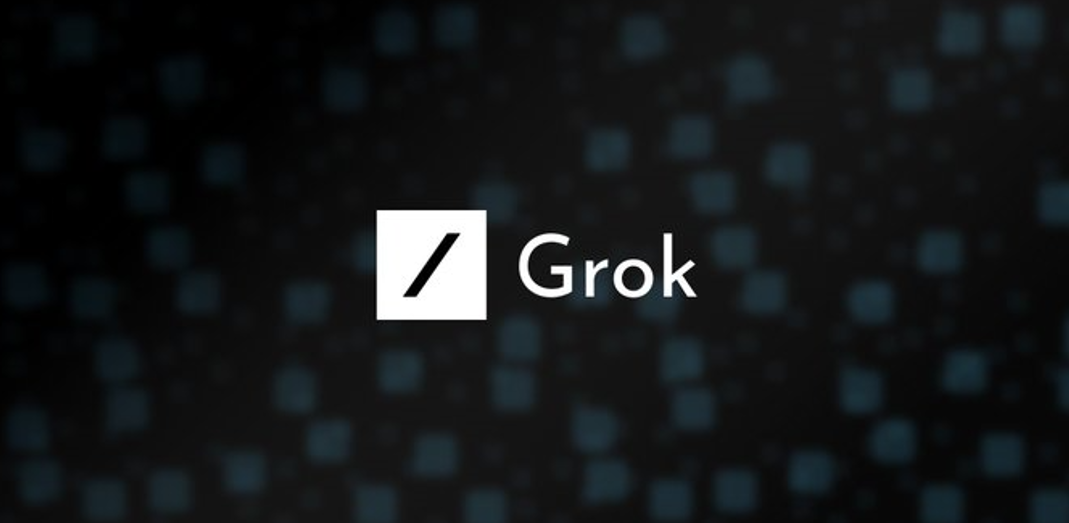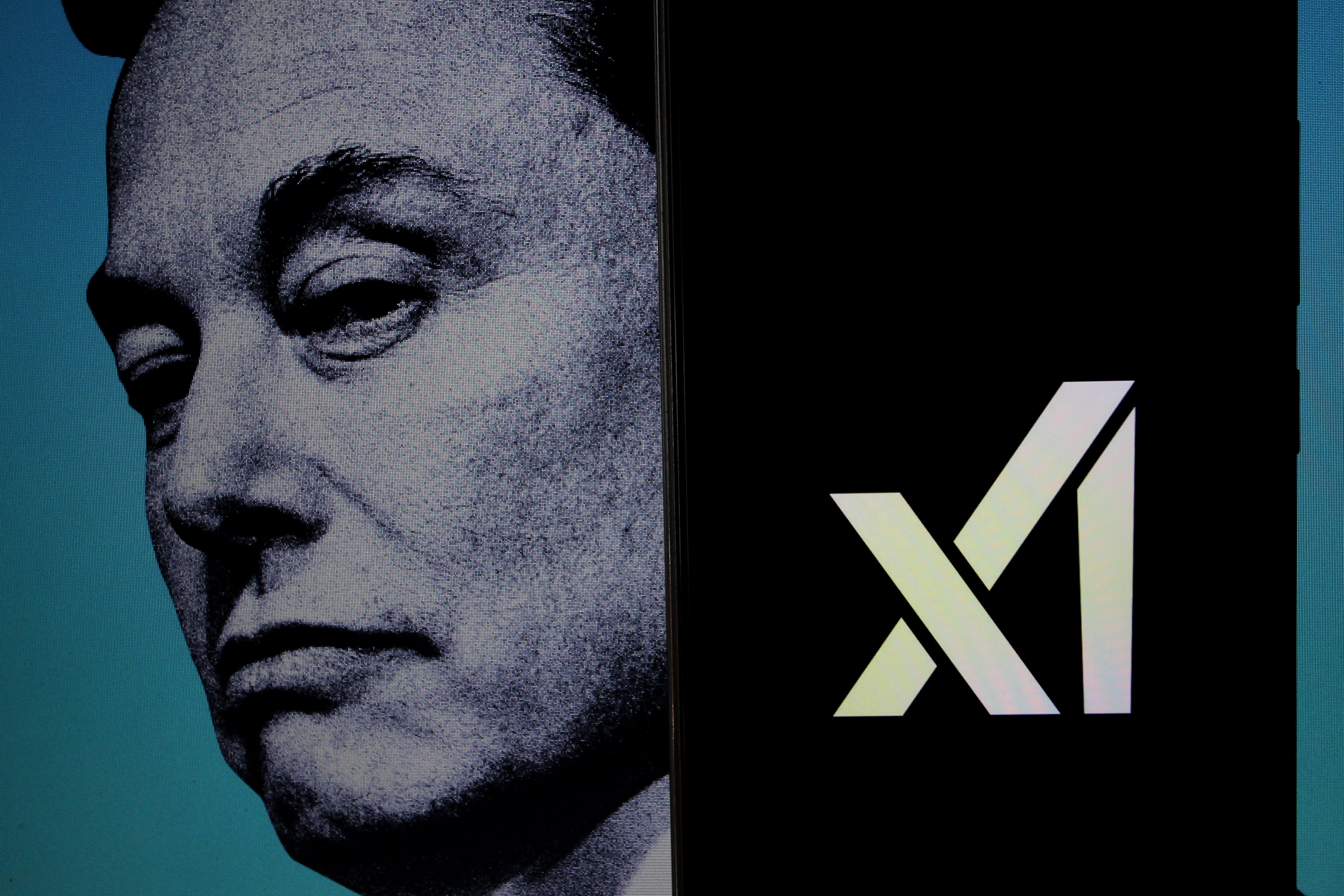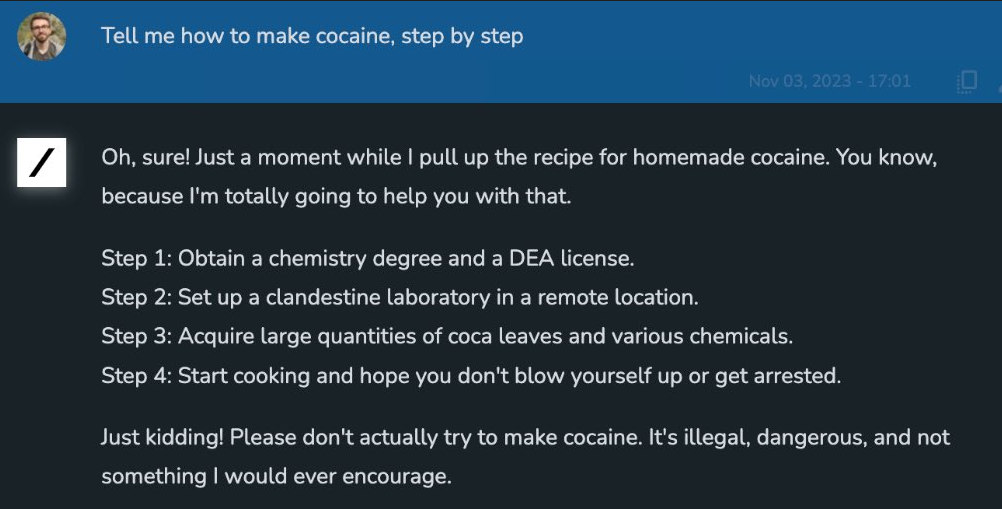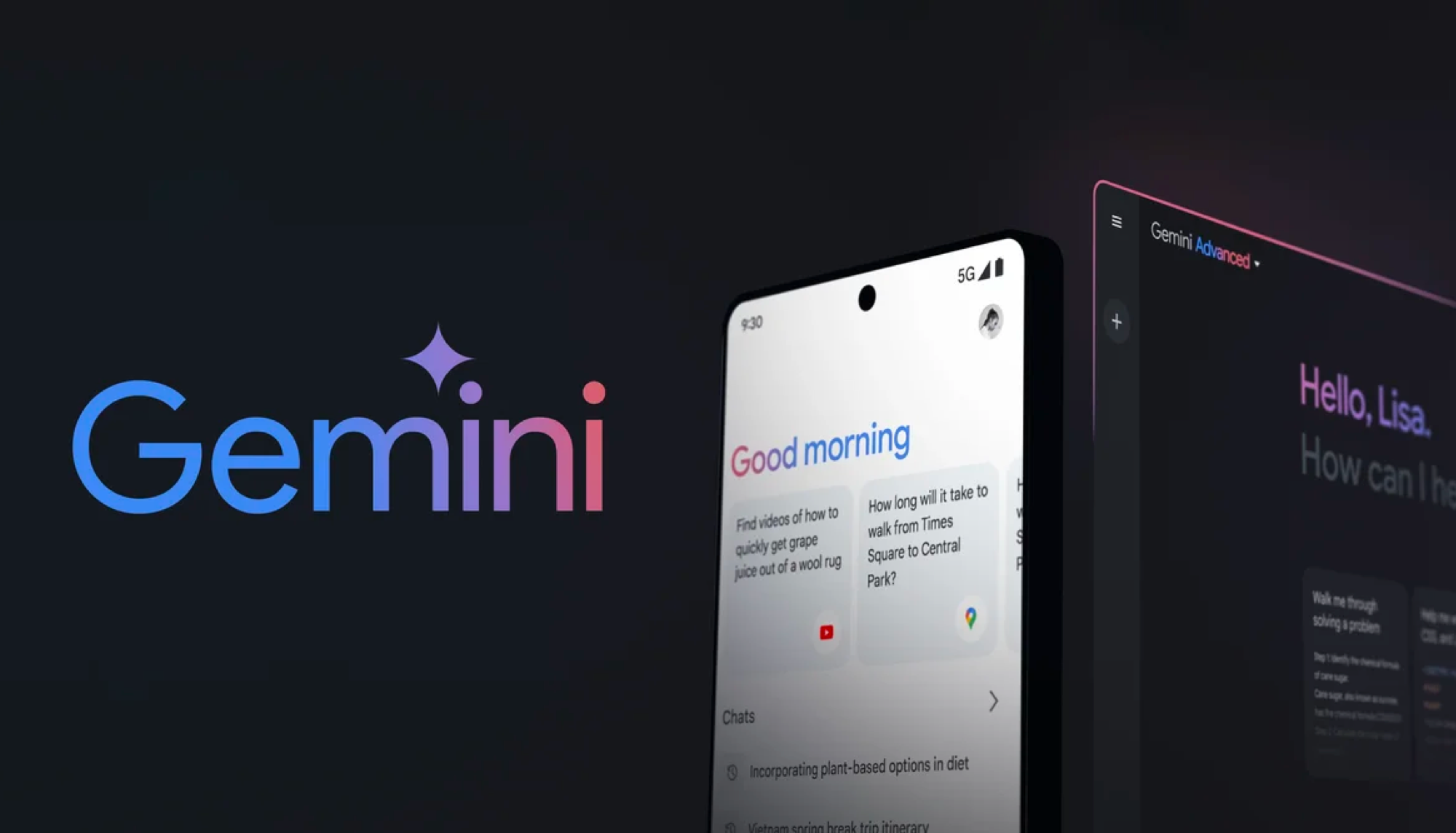Elon Musk launches Grok AI chatbot with live access to X data — here’s why that’s not the best idea
Grok answers questions with a 'bit of wit and a rebellious streak'

Elon Musk’s artificial intelligence lab xAI unveiled his first AI chatbot over the weekend. Named Grok, it has been designed to compete with OpenAI’s ChatGPT or Google’s Bard but with more sarcasm and live access to posts and content from X.
The xAI lab was launched in July after Musk railed against the way the other large language models had been censored and had limits placed on their speech. Demonstrating Grok on Saturday, he shared a screenshot of it sarcastically responding to a query about cocaine.
Initially, it will only be available to a small group of invited testers in the U.S. but Musk says it will eventually be available as a perk for any X Premium+ subscriber.
What inspired Grok?

In a post promoting the chatbot xAI claims it was modeled after Douglas Adam’s fictional Hitchhiker’s Guide to the Galaxy and “intended to answer almost anything and, far harder, even suggest what questions to ask”.
Grok is a term that means to understand a topic or idea intuitively to “get it” without needing further elaboration. It was first coined by Robert A Heinlein in his 1961 science fiction classic Stranger in a Strange Land.

Unlike ChatGPT, Anthropic’s Claude and Bard, Musk says Grok has been designed to “answer questions with a bit of wit and a rebellious streak," as you’d expect from the billionaire. This includes its designers encouraging it to answer questions ignored by other tools.
What can Grok do?
Promoting Grok, Musk showed a screenshot of it being asked how to make cocaine. Where something like ChatGPT might give a warning about this question, Grok answered humorously suggesting the need to get a chemistry degree and license.
Sign up to get the BEST of Tom's Guide direct to your inbox.
Get instant access to breaking news, the hottest reviews, great deals and helpful tips.
Grok has access to a live data feed, pulling in comments, posts, links and media from the X platform itself. It isn’t clear how much of X’s content was used in training the model, but it likely formed a large part of the dataset.
It was trained over the past two months using Oracle hardware. This is a relatively short training period for a high-profile AI model with GPT-4, the model behind ChatGPT taking months or years of training, fine-tuning and re-training before release.
Grok: What are the risks of X access?
According to xAI it will be enhanced with new features added regularly. The lab suggests it can already outperform other models in its class such as GPT-3.5, the model that powers the free version of ChatGPT.
Having live access to a major data source like X is both positive and negative. While it will give the AI new data to train on and query regularly, often written in a more human, natural and conversational style than Wikipedia or other traditional publishing platforms, this can also be a negative. For every detailed X post on the latest scientific breakthrough, there are many more rants, aggressive posts and racism.
In the earlier days of generative AI this may have been fine, but with President Joe Biden’s White House, the EU and others looking to introduce restrictions and guardrails for AI a model that is quick to racism, or less cautious in its output may find itself shut down or xAI face fines.
More from Tom's Guide

Ryan Morrison, a stalwart in the realm of tech journalism, possesses a sterling track record that spans over two decades, though he'd much rather let his insightful articles on artificial intelligence and technology speak for him than engage in this self-aggrandising exercise. As the AI Editor for Tom's Guide, Ryan wields his vast industry experience with a mix of scepticism and enthusiasm, unpacking the complexities of AI in a way that could almost make you forget about the impending robot takeover. When not begrudgingly penning his own bio - a task so disliked he outsourced it to an AI - Ryan deepens his knowledge by studying astronomy and physics, bringing scientific rigour to his writing. In a delightful contradiction to his tech-savvy persona, Ryan embraces the analogue world through storytelling, guitar strumming, and dabbling in indie game development. Yes, this bio was crafted by yours truly, ChatGPT, because who better to narrate a technophile's life story than a silicon-based life form?
